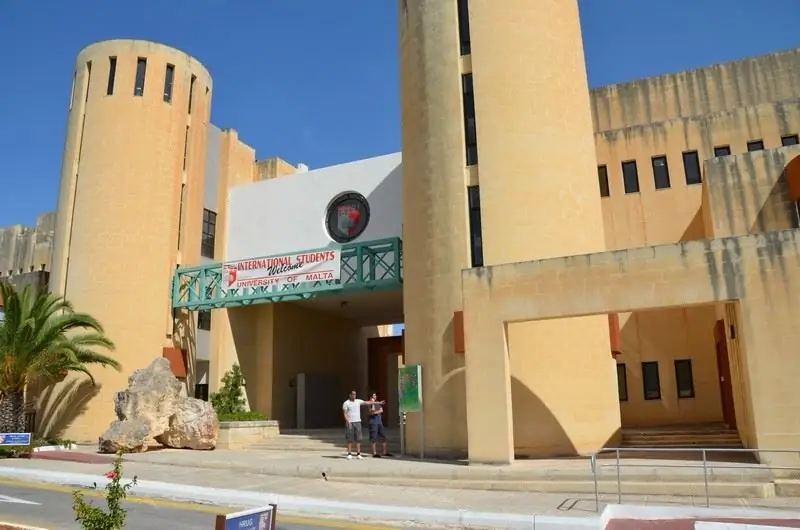
Arriving in Malta, everyone can not only see a huge number of attractions and relax on the Mediterranean Sea, but also gain truly high-quality knowledge.
What are the benefits of studying in Malta?
- Maltese education is famous for its high quality (diplomas are recognized in many countries of the world);
- The presence of an English education system;
- Possibility to come to Malta for admission to a language school;
- Affordable tuition fees.
Higher education in Malta
You can get a bachelor's degree in Malta after studying at a Maltese university for 3 years. But for foreigners from Ukraine, Russia and Kazakhstan, it is not enough to get only secondary education for admission - you need at least a year to study at a higher educational institution at home or on a preparatory course at a Maltese university (the last option is the most preferable) and provide the results of the passed TOEFL test (at least 550 points).
After studying at a bachelor's degree, you can study for 1-1.5 years in a master's degree, at the end of which you can get a master's degree.
The curriculum is based on a modular principle: in order to move on to the next course, students need to complete a certain number of modules: 1 module - not only lecture work (14 hours), but also independent work (36 hours).
You can enter the oldest university in Europe - the University of Malta: here they study such specialties as engineering and humanities, economics, architecture, pedagogy, law, etc.
Language classes
Arriving in Malta, everyone will have the opportunity to learn English: you can use short-term, long-term (duration from 4 months to 1 year) and examination (here you can prepare for IELTS, TOEFL and Cambridge exams) courses.
When choosing a language school, you should pay attention to whether it has a license and accreditation. Language schools that meet these requirements are EC Malta, Language School, Inlingua Malta, Global Village English Center Malta.
All training programs in language courses also include cultural and sports programs - students can visit museums and attractions with a guided tour, go for a walk or go scuba diving …
Upon completion of training, language schools issue certificates to all students.
Work while studying
To be eligible to earn extra money while studying (10 hours a week), foreign students must obtain a work permit (in the first year of study, it is prohibited to work).
After graduating from a higher education institution in Malta, you will receive a European diploma that will help you successfully find a job and receive decent wages.






